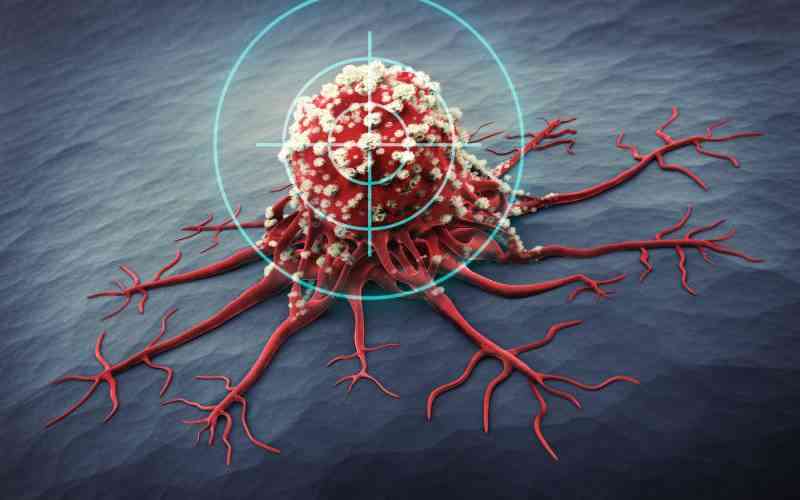
A new study has discovered the relationship between cancer cells and the immune system and revealed how cancer can selfishly hijack a normally helpful immune pathway known as STING.
The study led by researchers at Memorial Sloan Kettering Cancer Center (MSK) and Weill Cornell Medicine revealed that the disease activates a key immune pathway -- called the STING pathway -- triggering a strong inflammatory response that protects the body from foreign and unhealthy cells.
Immune activation is beneficial especially in acute and sudden infections, as it provides a beneficial role in controlling and eventually clearing the invading viruses, bacteria, infectious agents and sick cells.
However, as in the case of cancer and most chronic diseases, prolonged activation of the immune system leads to desensitization or depletion of disease-fighting cells, making way for complete disease takeover in the body.
"Think of it like a car alarm. If it rarely goes off, that's going to get your attention. But if it's going off all the time, you're going to get used to it and tune it out," said Samuel Bakhoum, MD, PhD, a researcher and radiation oncologist and one of the study's two senior authors during a briefing posted on Youtube on the Memorial Sloan Kettering Cancer Center channel.
- Kenya hosts breast cancer training as awareness month starts
- I lost my hair and breast, but never my hope: Roseline's cancer victory
- AAR Hospital cuts cancer screening costs
- How breast cancer survivors are turning scars into courage
Keep Reading
To deal with the unending signalling from cancer-sick cells, the immune system activates other immune cells which prevent and suppress the further immune response in and around the tumour.
The findings, which were published in Nature mid last week, helped shed light on why drugs to activate STING (known as STING agonists) have proved unsuccessful in clinical trials in patients with advanced cancer.
The discovery likewise suggested that many patients may actually benefit from medication that block the immune activation against the disease (STING inhibitors).
"There's been millions of dollars invested in drugs that activate and boost the STING pathway to fight cancer, and so far in clinical trials, they have not shown significant anti-cancer efficacy," Dr. Bakhoum said. "In the lab, these drugs held a lot of promise -- but in one trial of 47 patients, there were only two whose cancers even showed a partial response. In another trial of more than 100 patients that combined STING agonists with another immunotherapy, the overall response rate was 10 per cent. So the question driving this research was, 'Why don't they work despite such promise in the preclinical setting?'"
"It appears the reason activating STING in these patients isn't very effective is that most patients' cells are already desensitised to it due to the persistent activation of the pathway from cancer-sick cells," he said. "Counterintuitively, these patients may actually benefit from STING inhibition," said Bakhoum.
 The Standard Group Plc is a multi-media organization with investments in media
platforms spanning newspaper print
operations, television, radio broadcasting, digital and online services. The
Standard Group is recognized as a
leading multi-media house in Kenya with a key influence in matters of national
and international interest.
The Standard Group Plc is a multi-media organization with investments in media
platforms spanning newspaper print
operations, television, radio broadcasting, digital and online services. The
Standard Group is recognized as a
leading multi-media house in Kenya with a key influence in matters of national
and international interest.











